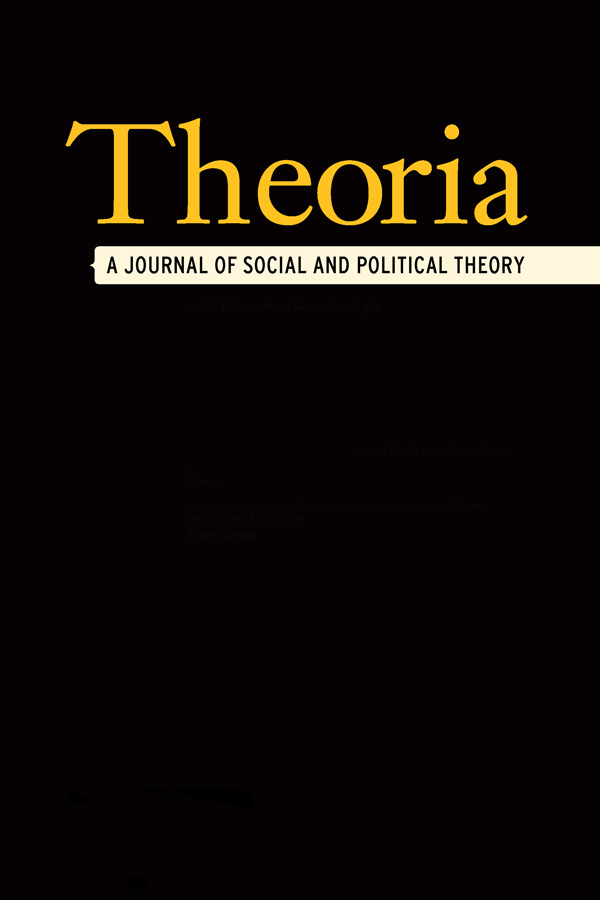
Theoria
A Journal of Social and Political Theory
ISSN: 0040-5817 (print) • ISSN: 1558-5816 (online) • 4 issues per year
Latest Issue
Volume 72 Issue 185
Archipelagic Thinking and Its Political Implications in the Western Pacific
This special issue aims to illustrate how the emerging approach of archipelagic thinking can contribute to political theory and international relations theory, and it attempts to grapple with the geopolitical and ontological complexities of the South China Sea and Western Pacific. Archipelagic thinking is an emerging interdisciplinary approach in island studies, political anthropology and political ecology. The interest of archipelagic thinking for political theorising rests on the following considerations: (1) it builds on the legacy of global anti-colonial and postcolonial movements that gained traction from the 1960s onwards and led to the development of decolonial and postcolonial critiques, subaltern studies and political ecology (
Extending the Archipelago Paradigm to Space
Carl Schmitt, Space Power and Two Competing Chinese Planetary Thinkings
Archipelago theory presents a vision of the world that transcends nation-states, linking islands, history, ethnicity and geography. Its conceptualisation, however, remains tethered to the maritime realm. This article proposes a space-oriented approach to extending the archipelago paradigm. In doing so, it revisits and advances Carl Schmitt's concept of a planetary spatial revolution through a case study of China. Using China as a focal point, this study examines two divergent forms of planetary thought: one nationalistic, potentially harmful, and the other cosmopolitan, offering a radically new vision of Earth as a singular, precious vessel.
Archipelagic/Aquapelagic Processes and Shifts in the Geography of Reason and Law in Island South East Asia
An Approach to Resisting the Enclosure of the Common Heritage of Mankind
Though it is most often imagined as an island continent, Australia is an archipelago set within a complex of archipelagoes. It is a relationship that must be seen as a dynamic historical process implying that the archipelagic chains of connection between Australia and the Indo-Australian Archipelago are processual, performative and complexly intertwined. Archipelagic thinking shifts the ‘geography of reason’ from one that is essentialist and co-produced with a Eurocentric, geolocational, property-based understanding of territorialisation and governance, to one that is heterotopic, multi-scalar, multi-ontological, dynamic and emergent. Its multi-spatiality not only embraces Indigenous perspectives and the geopolitical processes through which Island Southeast Asia came to be occupied, it also creates a knowledge space for the development of postcolonial justice. Archipelagic thinking is inherently cosmopolitical, given its emphasis on multiplicity and real difference. Establishing a regenerative cultural and environmental commons is the best way forward.
Archipelagic Geopolitics and the Oceanic Embedding of the Nomos of the Earth
This article brings into dialogue the debate on the governance of the global commons and the emergent postcolonial discourse on ‘archipelagic thinking’ on the basis of an interpretation of Carl Schmitt's idea of the
‘Un-Islandic’ Island-Making
A Decolonial Critique of China's Construction of Artificial Islands in the South China Sea
This article examines China's artificial island-building in the South China Sea as a form of ‘un-islandic’ violence that undermines ecological and relational principles central to archipelagic thinking. Drawing on Carl Schmitt's theory of
Book Reviews
D. A. J. Richards. 2023.
R. Crilley, N. Manchanda, L. J. Shepherd, C. Wilkinson, C. Biddolph, and S. Fishel. 2025.